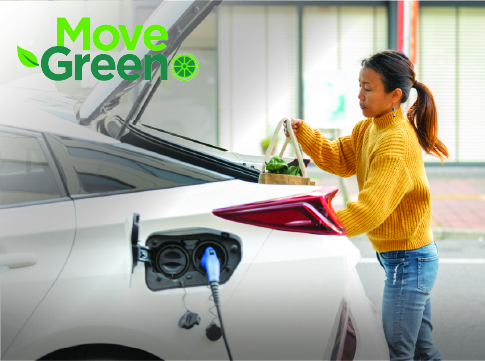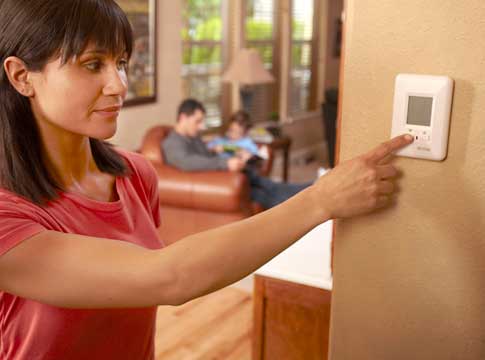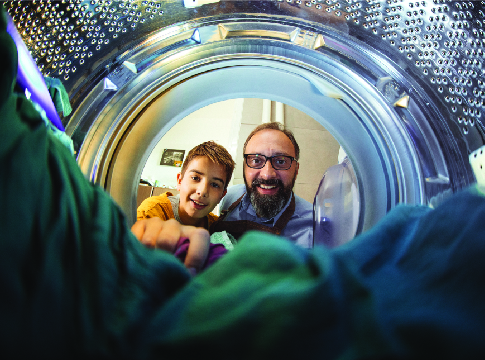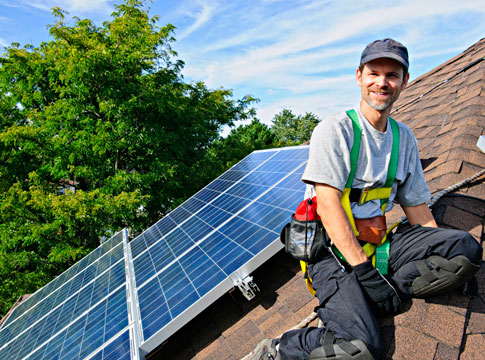As a publicly-owned utility, we exist for the benefit of our local community—a community that is known for its dedication to environmental sustainability and stewardship. Consistent with the values of our customer-owners, we're always looking to reduce our impact on the environment and to protect energy and water resources for generations to come.
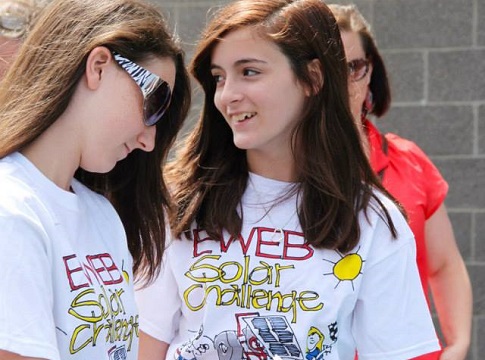
Climate leadership for our community
EWEB has a long history of environmental stewardship, particularly in the areas of power resources, energy and water conservation, and watershed protection. Looking ahead, we're committed to building on successes captured in past decades.
For EWEB, climate leadership means:
- Meeting our community's electricity needs with affordable, low-carbon sources
- Advancing policies to mitigate carbon emissions in the energy sector
- Reducing greenhouse gas emissions from utility operations
- Assisting customers with carbon reductions
- Preparing for the effects of climate change on our water and electric supply and infrastructure

Greenhouse gas reduction goals
Per EWEB’s Board-Approved Climate Change Policy (SD15), EWEB will reduce our net Scope 1 and 2 GHG emissions from operations relative to 2010 baseline levels by:
- 25% by 2020 – ACHIEVED!
- 50% by 2030
- Achieve carbon neutrality from our operations by 2050
To measure progress toward these goals and to better understand our contribution to global climate change, we prepare an annual greenhouse gas (GHG) inventory. The focus is on the GHG emissions associated with core business operations, such as fleet fuel consumption, electricity, and natural gas use. Read EWEB's 2022 GHG inventory.
In 2020, EWEB not only met but exceeded both its 2020 and 2030 GHG reduction targets by achieving a 55% reduction in annual emissions. Some of this reduction can be attributed to the COVID-19 pandemic as some business travel in owned vehicles and some building energy use was reduced due to stay-at-home orders.
As EWEB began to recover from the pandemic, the artificially depressed emissions from 2020 went back up in 2021. Yet 2021 emissions still show a decrease over pre-pandemic conditions in 2019. Emissions continued to decrease in 2022. In 2021 and 2022, EWEB achieved a 35% and 44% reduction in emissions over the 2010 baseline respectively. EWEB is well on its way to meeting and sustaining the ambitious goal of 50% reduction over baseline by 2030.
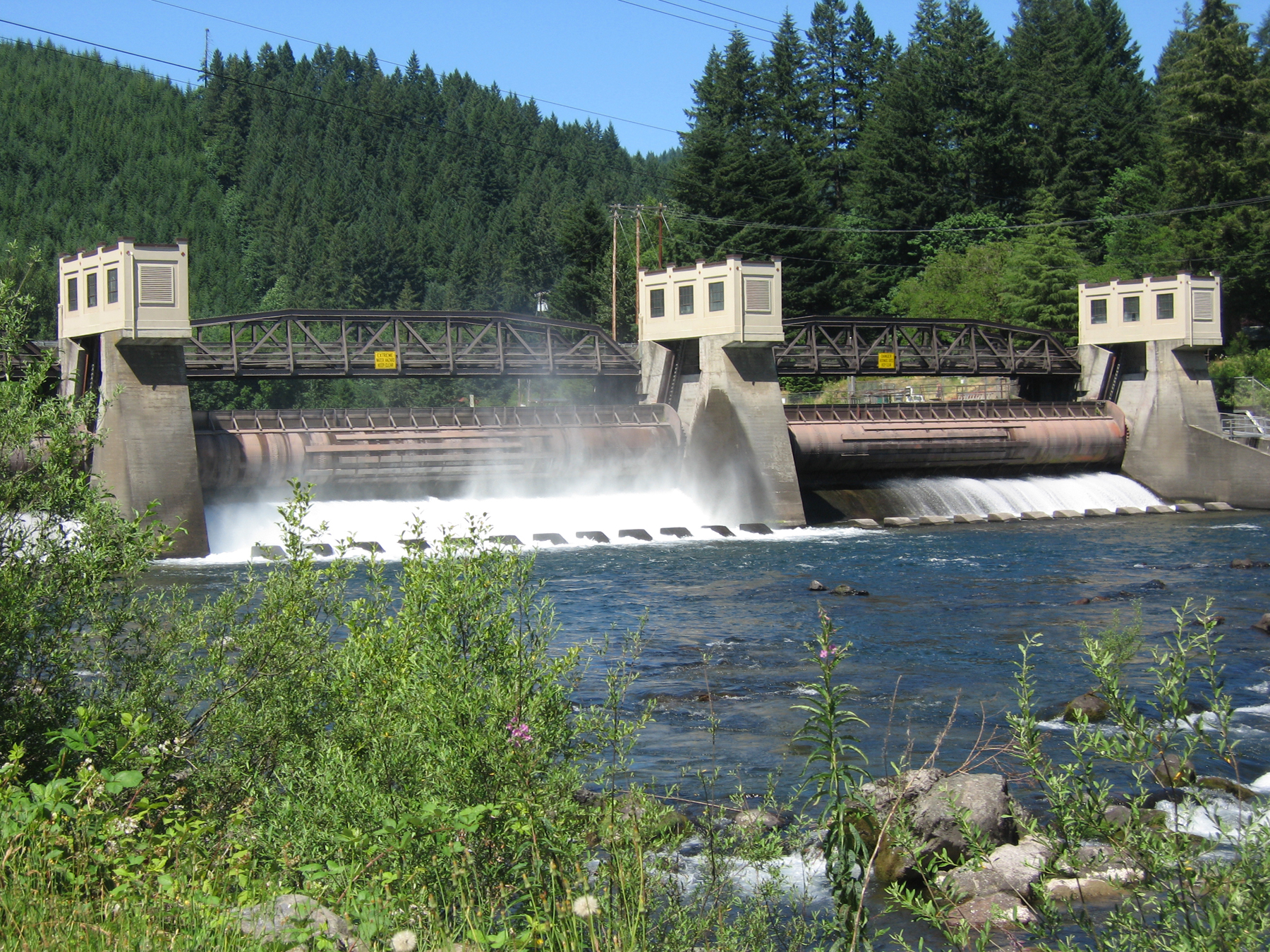
Power sources
Here in Eugene, we are fortunate to have one of the cleanest power portfolios in the nation, with almost no electricity sourced from fossil fuels. Eighty percent of Eugene's power comes from carbon-free hydroelectric energy. The remaining 20 percent of our power comes from conventional and renewable resources.

Choosing clean energy
If you're building or renovating a home, upgrading appliances, or buying a car, you will have important decisions to make, such as the type of energy you'd like to use. With EWEB's 90 percent renewable power, choosing clean energy over fossil fuels is a lot easier than you might realize. Read about the benefits of electric power and learn how our rebate and loan programs can help you save energy while reducing your carbon footprint.
Learn more
Climate change policy
Climate change presents ongoing environmental, economic and social risk to EWEB, our customers, our community and the world. Through partnerships with our customers and others in the region, EWEB will seek to decrease carbon emissions from the electric power sector, including our own generation resources and operations, and to assist customers with similar reductions.
Read more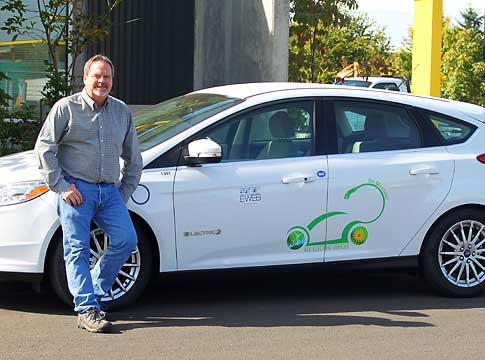
Greening our fleet
Our fleet of vehicles covers thousands of miles every year, so using alternative energy sources and conserving fuel is important to us.
- EWEB is the only fleet operation in the state of Oregon that uses E15 (15% Ethanol) in place of state-mandated E10.
- We are one of only two fleets operations in the state to use E85 (85% Ethanol) in our light duty vehicles.
- EWEB fleet currently uses R50 Renewable diesel in place of diesel fuel. The renewable diesel that we use is domestically produced in eastern Kansas.
- We use in-house oil analysis to check the condition of oil before changing it, allowing for fewer oil changes.
- EWEB is one of 31 fleets in North America to have been accredited as a sustainable fleet through the National Association of Fleet Administrators.
- EWEB's fleet services is a certified Ecological Business, an Oregon program that recognizes businesses that reach the highest standards in minimizing their environmental impact.
Our position on carbon pricing
We support local, state, national and international GHG emission reduction policies, such as the cap and trade approach that are direct, economy-wide, market-based and technology neutral. EWEB played an important advocacy and technical advisory role in the formulation of state cap and trade legislation that advanced to the final days of the 2019 and 2020 Oregon legislative sessions only to be blocked by Oregon’s atypically stringent quorum rules.
Although the Oregon legislature has not brought forward a cap and trade proposal since then, the state of Washington approved a cap and trade program in 2021 that is expected to link to California’s existing program soon. Regional carbon policy momentum coupled with ongoing efforts to reform Oregon’s quorum rules suggest that Oregon could revisit cap and trade in the future in the pursuit of a Pacific Coast Regional Carbon Program (British Columbia has a carbon tax). EWEB will be ready to reprise our advocacy and technical advisory role. Read more about EWEB's position on carbon pricing. Read EWEB's carbon policy and GHG principles.

Osprey Protection Program
EWEB electric crews and environmental staff monitor and evaluate nests on power poles to ensure safe nesting. Learn more about our Osprey Protection Program and how you can help EWEB protect osprey and prevent power outages.
Learn moreLearn more about programs that can help you be more sustainable at home and at work.
By signing up for Greenpower, you help support clean energy today and the development of green energy technologies in the future.
Upgrading from gas vehicles to electric cars and bikes can reduce air pollution and create a better, cleaner environment. In addition to the cost savings you'll get from electric transportation, you may qualify for EWEB rebates and state and federal tax credits.
Managing peak electricity demand is a critical component of achieving climate recovery goals and keeping energy affordable for all customers.
A cleaner energy future requires modernizing our power grid and water network.


